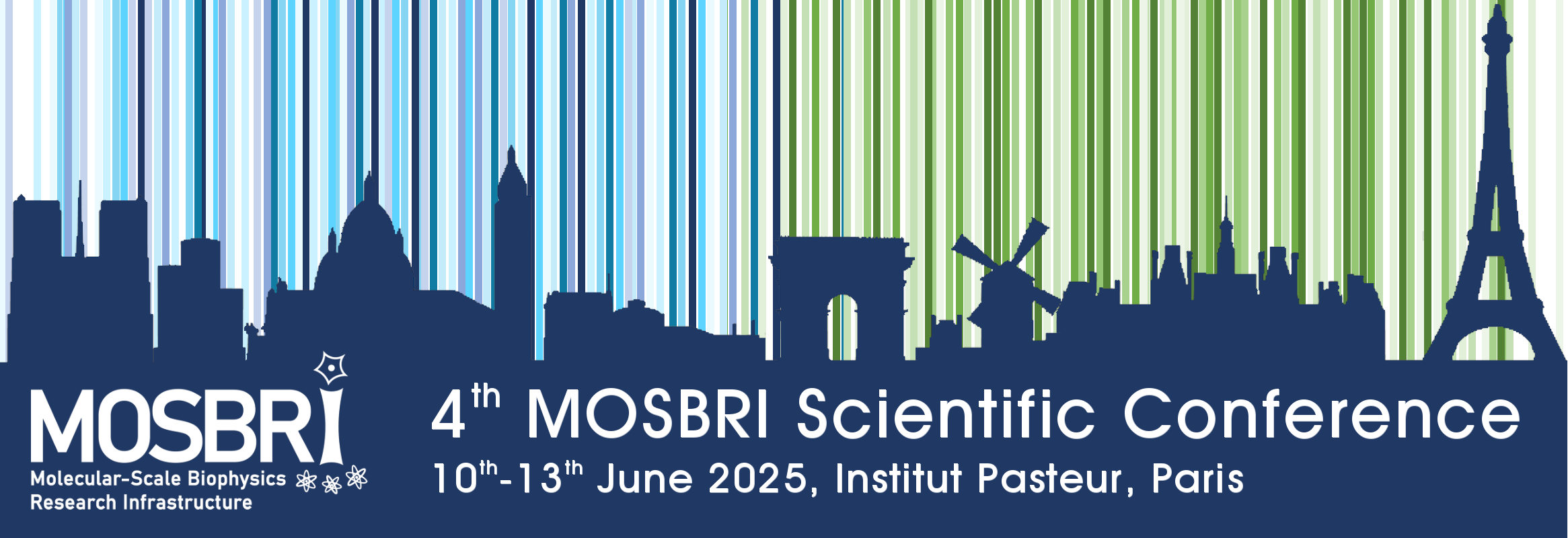
|
|
|
|
|
|
|
|
|
18/3-2025: The deadline for early bird registration and submission of abstracts has been extended to the 25th of March 2025.
9/12-2024: The list of speakers has been updated and details of bursaries available to PhD students and early stage postdocs has been added.
15/11-2024: Registration and abstract submission for the meeting is open.
Molecular-scale biophysics is the study of the architecture, dynamics and interactions of the giant molecules of life (proteins, DNA, RNA, polysaccharides, lipids) and their assemblies, using a large variety of distinct physical methods.
It holds a strategic position at the crucial intermediate level between atomic-resolution structural descriptions and cellular-scale observations and is situated at the crossroads of a variety of disciplines such as cellular, molecular and structural biology, biological chemistry, biomedicine, bio-production and biotechnology. It is fundamental to both our understanding of how living organisms work and our ability to block or enhance the function of these molecules, notably for therapeutic purposes.
MOSBRI is a consortium of 13 academic centres of excellence and 2 industrial partners from 11 different European countries, coordinated by Institut Pasteur (Paris, France) and funded by the European Commission Horizon 2020 programme. It was launched in 2021 to address the pressing need for a truly integrated and multi-methodological taskforce, combining the most up-to-date instrumentation and the best expertise available in Europe, to the benefit of all researchers in the fields of biomedicine, biotechnology, biomaterials and beyond, from both academia and industry.
Following on the success of previous MOSBRI conferences (Paris 2022, Zaragoza 2023 and Ljubljana 2024), MOSBRI2025 will show to an audience of more than 200 scientists from all over Europe and beyond how such an integrated network can tackle an unusually wide variety of life science research questions.
It will include plenary lectures by invited renowned experts, oral and poster presentations, company presentations, as well as success stories by scientists who have benefitted from the free trans-national access (TNA) opportunities that MOSBRI provides.
Session topics at the conference are:
- Macromolecular assemblies: architecture, energetics and dynamics
- Single molecule/single particle biophysics
- Molecular biophysics in vivo/in situ and in biomimetic environments
- Artificial intelligence, computational approaches and data analysis
- Macromolecular engineering and structure/function studies
- Molecular biophysics to address societal challenges (climate change, infectious or degenerative diseases, …)

